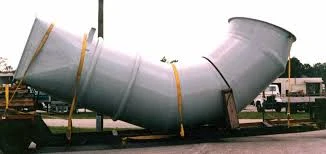
-
 Afrikaans
Afrikaans -
 Albanian
Albanian -
 Amharic
Amharic -
 Arabic
Arabic -
 Armenian
Armenian -
 Azerbaijani
Azerbaijani -
 Basque
Basque -
 Belarusian
Belarusian -
 Bengali
Bengali -
 Bosnian
Bosnian -
 Bulgarian
Bulgarian -
 Catalan
Catalan -
 Cebuano
Cebuano -
 China
China -
 China (Taiwan)
China (Taiwan) -
 Corsican
Corsican -
 Croatian
Croatian -
 Czech
Czech -
 Danish
Danish -
 Dutch
Dutch -
 English
English -
 Esperanto
Esperanto -
 Estonian
Estonian -
 Finnish
Finnish -
 French
French -
 Frisian
Frisian -
 Galician
Galician -
 Georgian
Georgian -
 German
German -
 Greek
Greek -
 Gujarati
Gujarati -
 Haitian Creole
Haitian Creole -
 hausa
hausa -
 hawaiian
hawaiian -
 Hebrew
Hebrew -
 Hindi
Hindi -
 Miao
Miao -
 Hungarian
Hungarian -
 Icelandic
Icelandic -
 igbo
igbo -
 Indonesian
Indonesian -
 irish
irish -
 Italian
Italian -
 Japanese
Japanese -
 Javanese
Javanese -
 Kannada
Kannada -
 kazakh
kazakh -
 Khmer
Khmer -
 Rwandese
Rwandese -
 Korean
Korean -
 Kurdish
Kurdish -
 Kyrgyz
Kyrgyz -
 Lao
Lao -
 Latin
Latin -
 Latvian
Latvian -
 Lithuanian
Lithuanian -
 Luxembourgish
Luxembourgish -
 Macedonian
Macedonian -
 Malgashi
Malgashi -
 Malay
Malay -
 Malayalam
Malayalam -
 Maltese
Maltese -
 Maori
Maori -
 Marathi
Marathi -
 Mongolian
Mongolian -
 Myanmar
Myanmar -
 Nepali
Nepali -
 Norwegian
Norwegian -
 Norwegian
Norwegian -
 Occitan
Occitan -
 Pashto
Pashto -
 Persian
Persian -
 Polish
Polish -
 Portuguese
Portuguese -
 Punjabi
Punjabi -
 Romanian
Romanian -
 Russian
Russian -
 Samoan
Samoan -
 Scottish Gaelic
Scottish Gaelic -
 Serbian
Serbian -
 Sesotho
Sesotho -
 Shona
Shona -
 Sindhi
Sindhi -
 Sinhala
Sinhala -
 Slovak
Slovak -
 Slovenian
Slovenian -
 Somali
Somali -
 Spanish
Spanish -
 Sundanese
Sundanese -
 Swahili
Swahili -
 Swedish
Swedish -
 Tagalog
Tagalog -
 Tajik
Tajik -
 Tamil
Tamil -
 Tatar
Tatar -
 Telugu
Telugu -
 Thai
Thai -
 Turkish
Turkish -
 Turkmen
Turkmen -
 Ukrainian
Ukrainian -
 Urdu
Urdu -
 Uighur
Uighur -
 Uzbek
Uzbek -
 Vietnamese
Vietnamese -
 Welsh
Welsh -
 Bantu
Bantu -
 Yiddish
Yiddish -
 Yoruba
Yoruba -
 Zulu
Zulu
fiberglass vessels and tanks
The Advantages of Fiberglass Vessels and Tanks
Fiberglass, a composite material consisting of a polymer matrix reinforced by glass fibers, has gained immense popularity across various industries for its excellent properties and versatility. One of the most prominent applications of fiberglass is in the manufacturing of vessels and tanks. These structures are used for a wide range of purposes, including water storage, chemical storage, and transportation of various substances. In this article, we will explore the numerous advantages of fiberglass vessels and tanks, highlighting why they are often the preferred choice over traditional materials like metal and concrete.
Durability and Corrosion Resistance
One of the most significant advantages of fiberglass vessels and tanks is their exceptional durability. Unlike metal tanks, fiberglass does not rust or corrode when exposed to moisture or harsh chemicals. This characteristic makes fiberglass an ideal choice for storing and transporting corrosive substances, such as acids and alkalis. The resistance to corrosion significantly extends the lifespan of fiberglass vessels, leading to reduced maintenance costs and the need for replacements.
Lightweight Nature
Fiberglass is considerably lighter than metal and concrete, which simplifies transportation and installation. The reduced weight enables easier handling during manufacturing and installation processes, allowing for more efficient logistics and reduced labor costs. This lightweight property is especially beneficial in applications where weight limitations are a concern, such as in marine vessels. The lower weight of fiberglass boats, for instance, contributes to better fuel efficiency and enhanced speed.
Flexibility in Design and Customization
Fiberglass can be molded into virtually any shape and size, providing designers and manufacturers with unparalleled flexibility. This adaptability allows for the creation of tanks and vessels that meet specific client needs or unique installation requirements. Moreover, fiberglass can be manufactured in various colors and finishes, providing aesthetic options that are not easily achievable with metals or concrete.
Insulation Properties
fiberglass vessels and tanks

Another notable advantage of fiberglass vessels is their excellent insulation properties. The material is naturally insulating, which helps to maintain temperature stability for the contents inside the tank or vessel. This characteristic is particularly important in applications where maintaining a specific temperature is crucial, such as in the food and beverage industry, where temperature fluctuations can affect product quality.
Low Maintenance Requirements
Fiberglass vessels and tanks require minimal maintenance compared to their metal counterparts. The non-corrosive nature of fiberglass means there is no need for regular protective coatings to prevent rusting. Additionally, cleaning fiberglass is often easier, as its smooth, non-porous surface does not harbor bacteria or buildup, reducing the need for extensive cleaning protocols.
Environmental Considerations
As environmental awareness increases, the demand for sustainable materials is growing. Fiberglass can be manufactured with recycled materials, and its durability contributes to longer-lasting products that reduce waste. Moreover, the production process of fiberglass can be less energy-intensive compared to metals, adding to its appeal as an eco-friendly option.
Cost-Effectiveness
While the initial cost of fiberglass vessels and tanks may be higher than some traditional materials, the long-term savings are substantial. The extended lifespan, low maintenance requirements, and reduced risk of failure can lead to significant cost savings over time. Additionally, the energy efficiency of fiberglass vessels can translate into lower operational costs.
Conclusion
In conclusion, fiberglass vessels and tanks offer a myriad of advantages that make them suitable for a wide range of applications. Their durability, lightweight nature, flexibility in design, insulation properties, low maintenance needs, and environmental sustainability position them as a superior choice over traditional materials. As industries continue to seek reliable and innovative solutions, fiberglass vessels and tanks are set to play an increasingly vital role in our daily lives. Whether for commercial, industrial, or personal use, embracing fiberglass technology can lead to enhanced efficiency, longevity, and sustainability in various applications.









